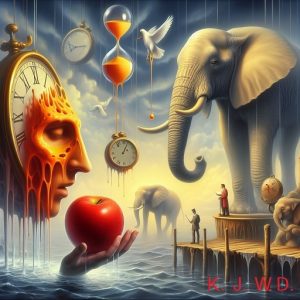In the tapestry of human existence, there are filaments that bind us together, threads that weave through the fabric of our days, shaping our experiences and defining our routines. Among these filaments, there is one that is often overlooked, yet undeniably present: the thread of laundry.
Laundry, the humble chore of cleaning clothes, may seem mundane, a prosaic task relegated to the realm of domesticity. Yet, beneath its ordinary façade lies a rich fabric of human emotions, experiences, and cultural significance. To truly understand laundry is to delve into the depths of the human condition, to unravel one of the tangled mysteries of our lives.
Laundry is a universal dance, a rhythmic ritual performed around the globe, regardless of age, social status, or cultural background. It is a dance of sorting, of cleansing, of renewal. We gather our soiled garments, the remnants of our daily lives, and subject them to the purifying waters, transforming them once again into refined vessels of our existence.
There are varying perceptions of laundry; for some laundry is a chore, a burden to be borne, a never-ending cycle of sorting, washing, drying, and folding. For the fortunate there is the rhythmic hum of the washing machine for others the pungent aroma of detergent, the endless stacks of wrinkled clothes and yes these can also evoke feelings of tedium and frustration.
Still for others, laundry is a sanctuary, a space for quiet contemplation and introspection. The repetitive motions, the gentle sounds, the tactile sensation of freshly washed clothes – these can provide a sense of calm and serenity amidst the chaos of modern day life.
Then we have the social construct call a laundromat, that communal haven of washing machines and dryers which is a microcosm of society itself. A stage where human dramas unfold among the whirring of machines. Here, strangers converge, united by the common task of cleaning their clothes, their lives intersecting for brief moments. Conversations arise, anecdotes are shared, laughter and commiseration mingle in the air. The laundromat becomes a temporary sanctuary, a space where social barriers dissolve and the shared experience of doing our laundry creates a sense of connection.
The phrase “airing dirty laundry” became synonymous with the act of revealing private or embarrassing information, often in a public forum. It is a metaphor that speaks to the delicate balance between transparency and discretion, between the desire for catharsis and the fear of judgment. When dirty laundry is aired, it can be a liberating experience, a release of pent-up emotions and unresolved conflicts.
Laundry itself, in its seemingly mundane nature, can be seen as a microcosm of life itself. It is a cycle of cleansing, of renewal, of starting afresh. Just as we wash our clothes, we must also cleanse our hearts and minds, let go of the past, and embrace the possibilities of the future.
Doing laundry, despite its potential for tedium, can also be a source of joy and satisfaction. The simple act of folding a neatly laundered shirt, running our fingers over the soft fabric, can and often does evoke a sense of accomplishment and well-being.
The aroma of freshly washed linens can remind us of the comforting scents of home and they can transport us back to our childhood, to moments of innocence and security. In these moments, we can often rediscover the beauty in the humdrum and joy in the ordinary.
Laundry, in its prevalence and its simplicity, is a powerful symbol of the human experience. It is a reminder of our shared humanity, of the commonalities that bind us together. It is an invitation to pause, to reflect, to find beauty in the everyday, to embrace the mundane as a part of the tapestry of our lives.
I myself thank the Divine for this simple task multiple times each week





